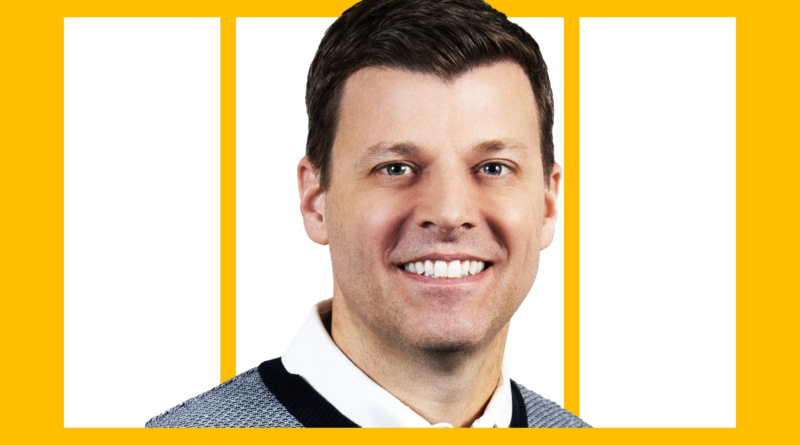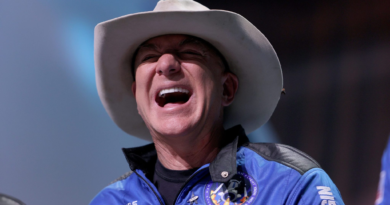Intel’s CFO has a tough new job: Serve as interim co-CEO to keep its finances from further ‘deteriorating’
Good morning. Intel Corporation’s CEO Pat Gelsinger retired from the company and stepped down from the board of directors on Monday. The board gave him the option to retire or be removed, according to reports. The chipmaker, once the biggest in the world, has struggled for some time to keep up with artificial intelligence computing. And now its CFO is tasked with helping to keep the company afloat.
David Zinsner, EVP and CFO, and Michelle (MJ) Johnston Holthaus, CEO of Intel Products, will serve as interim co-chief executive officers while the board of directors searches for a new CEO. Zinsner joined Intel, a Fortune 500 company, as finance chief in January 2022. He has more than 25 years of financial and operational experience in semiconductors and manufacturing, including CFO roles at Micron Technology, Inc. and Analog Devices.
Zinsner will continue to perform his duties as CFO while serving as interim co-CEO, Intel confirmed in an email. Holthaus joined Intel in 1996 and has held a variety of leadership roles in sales and product marketing.
“With Dave and MJ’s leadership, we will continue to act with urgency on our priorities: simplifying and strengthening our product portfolio and advancing our manufacturing and foundry capabilities while optimizing our operating expenses and capital,” Frank Yeary, interim executive chair, said in a statement.
Intel was once dominant in its core business for central processing units. But rival AMD now has a significant market share. Then Intel failed to see the extent to which graphics chips would come to dominate the market for AI. Nvidia took the graphics processing unit used for video games and turned it into the powerhouse for training and running AI models, to dominate the new field.
Gelsinger, CEO since 2021, had a 40-plus-year career at Intel. He was betting the company on 18A, a new chipmaking process hoping it would be a viable alternative to Taiwan Semiconductor Manufacturing Co., (TSMC) the world’s leading contract manufacturer of chips, Fortune’s Jeremy Kahn recently reported.
Intel’s ‘delicate’ financial position
Almost three years after joining Intel as finance chief, Zinsner will now co-lead a company that is in significant trouble.
I asked Peter Cohan, associate professor of management practice at Babson College, for some insight. He thinks Zinsner was chosen as an interim co-CEO because Intel has to “keep its financial position from deteriorating so far that it becomes difficult for the board to hire a new CEO to turn around the company,” he told me.
In Q3, the company’s net loss totaled $16.6 billion due to factors including restructuring charges and losses by the manufacturing unit. Intel shares plunged more than 60% during Gelsinger’s tenure. The company has fallen out of the industry’s top 10 companies by market capitalization, a list now led by Nvidia and TSMC, Fortune reported. S&P Dow Jones Indices announced on Nov. 1 that Nvidia will replace Intel in the Dow Jones Industrial Average.
Why did Intel go the route of interim co-CEOs? “Simply put, this arrangement is the board’s way of saying that Intel’s financial position is too delicate not to have a product and financial person share the job,” Cohan said.
An interim co-CEO appointment “sends a clear message to shareholders that the board is covering its bases,” Scott W. Simmons, co-managing partner of the executive search firm Crist Kolder Associates, told me.
Zinsner is a four-time sitting CFO with deep roots in R&D-driven technology companies, Simmons said. “His knowledge and experience are invaluable and a perfect complement to Holthaus, whose role is to strengthen and advance the product portfolio and manufacturing capabilities,” he said.
It will take a lot of teamwork to turn Intel around.
Sheryl Estrada
sheryl.estrada@fortune.com
The following sections of CFO Daily were curated by Greg McKenna.
Leaderboard
Anu Subramanian will resign as CFO of Bumble (Nasdaq: BMBL), which manages online dating and social networking apps, to pursue other opportunities, the company said. She will continue to serve through March 14, including through the company’s year-end earnings and the filing of its Form 10-K, and will assist with the transition as the company looks for a successor. Subramanian joined Bumble as CFO in 2020 and helped lead the company’s IPO in 2021.
Mark Scheiwer was promoted to interim CFO of The Scotts Miracle-Gro Company (NYSE: SMG), a lawn and garden care company, effective Dec. 31. He will succeed Matt Garth, who will depart after serving in the role since December 2022. Scheiwer joined the company in September 2011 and has held several finance roles of increasing responsibility, most recently serving as VP and treasurer. He previously held a senior audit position with Ernst & Young.
Big Deal
Americans have felt the impacts of inflationary pressures on their household finances, but a new analysis from USAA finds the country’s service members are in a stronger position than before COVID. Using account and product data from 900,000 of the bank’s members who currently serve in the military, the report found service members saw an average 19% increase in their savings balances and a 23% jump in their checking balances between 2019 and 2023.
When inflation hit four-decade highs, however, military members also had to adjust. The typical checking and saving balances of service members declined last year by 12% and 10%, respectively. At the same time, members increased their everyday spending in several essential categories, including grocery and pharmacy (32%), fuel (36%), and utilities (13%).
“While it’s great to see service members in a better place than they were pre-pandemic, we can’t ignore the reversal in trends,” said Michael Moran, the company’s interim bank president. “With inflation continuing to pressure military households, we encourage service members to be vigilant with their personal finances and preserve some of these hard-earned gains.”
Going deeper
“Billionaire Fiat heir assumes control of Jeep and Ram parent Stellantis after embattled CEO Carlos Tavares exits,” is a new report from Fortune’s Christiaan Hetzner. Problems in the U.S. market have punctuated a rapid and stunning decline at one of the world’s largest automakers, which Tavares helped create through the 2019 merger of France’s PSA and Fiat Chrysler Automobiles. For now, board chairman John Elkann, the great-great grandson of Fiat founder Giovanni Agnelli, will serve as head of a newly-formed interim executive committee.
Overheard
“The Trump administration had promised that enacting tariffs on China would bring manufacturing jobs back to the United States, and that we didn’t really need to worry about Chinese retaliation. We find that both of those claims look like they’re wrong.”
— Gordon Hanson, a professor at the Harvard Kennedy School, told the Harvard Business Review about his research into the economic and political impacts of the trade war during President-elect Donald Trump’s first term.



